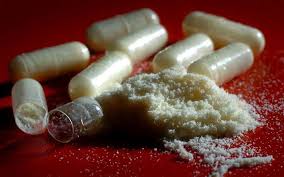Nigerian Singer, Inetimi Alfred, popularly known as Timaya has opened up about his past struggle with drug addiction.
In an interview with The Beat 99.9 FM, Lagos which was shared on the station’s Instagram account on Thursday, the renowned singer revealed that his battle with drug addiction began during the COVID-19 lockdown in 2020.
Timaya shared how he was introduced to Molly, a synthetic drug with psychedelic effects, by young boys living with him.
He recounted how the drug initially brought him happiness but eventually led to detrimental effects on his health, including weight loss and financial struggles.
Acknowledging his past mistakes, Timaya admitted to regularly consuming three pills of Molly daily, equating it to medication.
However, he realised the severity of his addiction after suffering significant financial loss and damaged relationships.
the drug initially brought me happiness but it eventually led to detrimental effects on my health -Timaya
Timaya said, “I am not a saint. I have done drugs. Breaking off from drugs was a hell, it was a tough fight.
“I got introduced to drugs during the COVID-19 lockdown, in 2020. Everybody was home and there were those young guys in my house who were always so happy.
“And I was like, ‘Bro, how are you guys happier than me? I am the boss, I got money. What are you guys on?’ And they told me that they got Molly.
“When I took it, I did not understand myself. I was so happy that I dashed all the money in my pocket. So I wanted to just keep feeling like that.
“That was how I lost a lot of weight. I was not eating, I was just happy. How you go just want dey happy? You are supposed to, first of all, be happy naturally. But when you now need substance to make you happy, it replaces natural happiness. So you have to be buying happiness.
I was taking Molly like three pills every day and it felt like medication
“When I said I was taking Molly, I was taking like three pills every day and it felt like medication.
“I got kicked out of jobs, contracts… people I was doing business with did not want to work with me again.”


What is Molly?
According to the US Drug Enforcement Administration [DEA], Molly is a toxic mixture of lab-created chemicals. Known as party drug, the synthetic drug is produced in widely varying strengths.
- Molly can take many different forms, although it’s most often found in a capsule or powder, and in injectable form.
- The drugs frequently found in Molly are Methylone, MDPV, 4-MEC, 4-MMC, Pentedrone and MePP.
- The lab-created chemicals mimic the effects of MDMA [3,4-Methylenedioxymethamphetamine, commonly known as ecstasy, and molly or mandy].
- The chemicals are a potent empathogen–entactogen with stimulant and minor psychedelic properties.
- Most of them are central nervous system stimulants that cause euphoric highs
- They can also cause a rapid heartbeat, high blood pressure, blood vessel constriction and sweating.
- They can prevent the body from regulating temperature.
- Some of the chemicals have been reported to cause intense, prolonged panic attacks, psychosis and seizures.
- Unlike ecstasy, which is MDMA in the form of a pressed pill, molly is the powder or crystal form of MDMA considered to be purer.
- After they wear off, the chemicals can cause devastating depression. Several of these compounds have caused deaths.
Who uses Molly?
- Molly is usually marketed to young first-time drug abusers between the ages of 12 and 17
- Traditional rave, electronic dance music fans who may think they’re getting MDMA
What makes Molly so dangerous?
- Molly is dangerous because of the toxic mix of unknown chemicals
- Users have no idea what they’re taking or at what dose
- Unlike MDMA and other illegal drugs that have known effects on the body, the formulas for these synthetic drugs keep changing, and they’re manufactured with no regard to how they affect the user.
How to tell if someone is using or has used Molly
The effects can vary widely, depending on the chemical, but while users are under the influence, they may exhibit the following symptoms:
- Sweating
- Jaw clenching
- Violent or bizarre behavior
- Psychosis
After the drug has worn off, a user may show:
- Signs of depression
- May not be able to get out of bed for an extended period of time.


